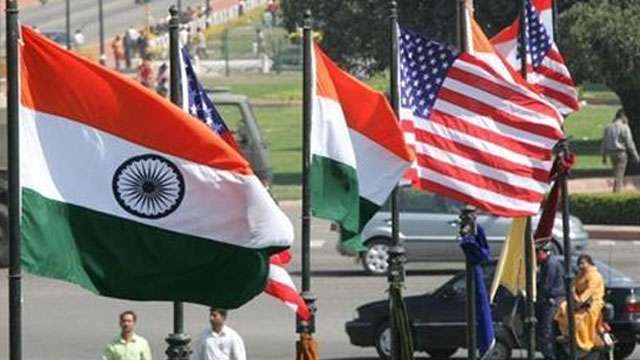Five former US ambassadors to India have written to top US Congressional leaders in support of a “clean” immigration reform bill that does not include any discriminatory provisions that may harm US or Indian interests.
Five former US ambassadors to India have written to top US Congressional leaders in support of a “clean” immigration reform bill that does not include any discriminatory provisions that may harm US or Indian interests.
“For all the right reasons, the United States has made India one of our premier strategic partners,” wrote the five who served as envoys to New Delhi between 1991 and 2009 described as “the transformative period that heralded India’s economic opening and liberalization.
“American competitiveness and vitality depend heavily on robust US-India commercial ties,” they wrote seeking a legislation which supports the growth of the US-India knowledge economy
“Any comprehensive immigration reform legislation approved by Congress must appreciate the mutual benefit of deepening the US-India partnership, which is vitally important to our two countries and the global economy,” the former envoys wrote.
The letter ahead of Prime Minister Manmohan Singh’s visit to the US later this month is addressed to Republican House Speaker John A. Boehner, Democrat House Minority Leader Nancy Pelosi, Democrat Senate Majority Leader Harry Reid and Republican Senate Minority Leader Mitch McConnell.
Signed by former ambassadors Thomas R. Pickering (1992-1993), Frank G. Wisner (1994-1997), Richard Celeste (1997- 2001), Robert Blackwill (2001-2003) and David C. Mulford (2004-2009, the letter was circulated by the US-India Business Council (USIBC) comprising about 350 top-tier US and Indian companies.
A key aspect of US-India has been the ability of US companies to draw upon Indian information technology (IT) professionals to form a “knowledge economy” – not outsourcing- “to drive innovation and provide US companies with an advantage over global competitors, they wrote.
While “US Congressional efforts to further Comprehensive Immigration Reform can be of great benefit,” they were “concerned that the high-skilled visa provisions in legislation currently contemplated by the Senate are not in US economic interests and they complicate our relations with India.”
“The Comprehensive Immigration Reform legislation that has passed the US Senate unfortunately differentiates between US providers of IT and Indian IT companies which provide the same services to American businesses using virtually the same labour pool sourced from India,” the envoys lamented.
In particular, the bill will block Indian IT companies as well as significant US IT service providers from providing these essential services – and free-market competition – to leading US-based multinational companies, they wrote.
“Equally important, such legislation sends a protectionist signal to our Indian counterparts – a signal normally reserved for nations with whom we have non-productive relations,” the envoys wrote asserting “India does not fit this category.”
While many US companies entering the Indian market have found tremendous success, they noted, others have “struggled with Indian policies related to tariffs, intellectual property, tax treatment and local manufacturing requirements as well as needless interference by state and local officials.”
Noting that ongoing US-India bilateral “dialogue and not punitive legislation has in the past helped resolve differences,” the envoys warned that “departing from this approach will not solve these problems; it risks provoking ‘tit for tat’ retaliation, which denigrates this important relationship.”
The envoys asked the Congressional leaders to seek revision of “those sections and remove those features of any bill that would limit market entry of IT professionals who work for so-called Visa-dependent IT companies.
“These provisions, currently in the Senate bill and any which may be included in the counterpart pending House bill, are virtually punitive and cry out for redress and excision,” they wrote.
-IANS





